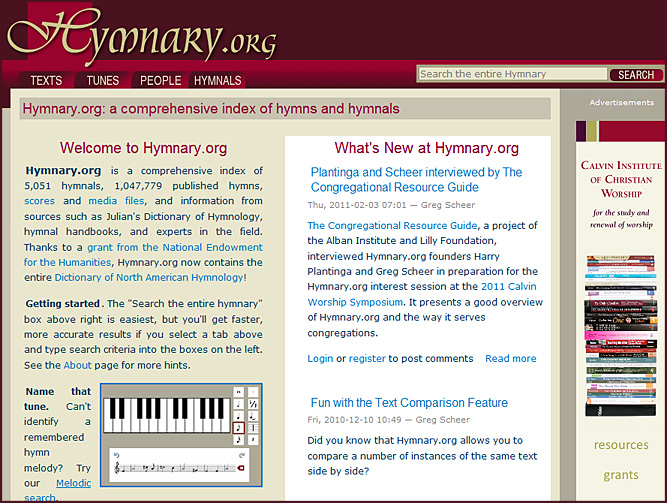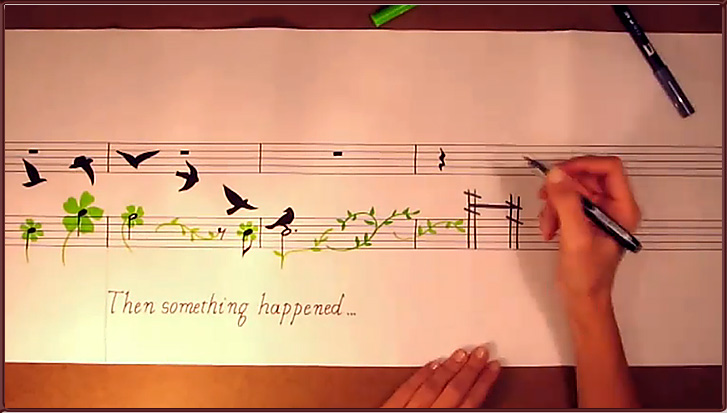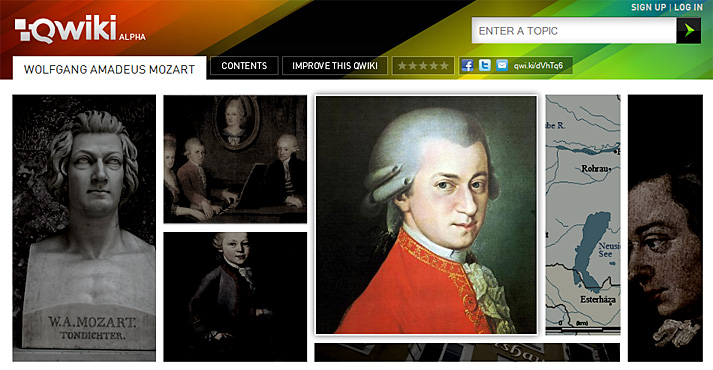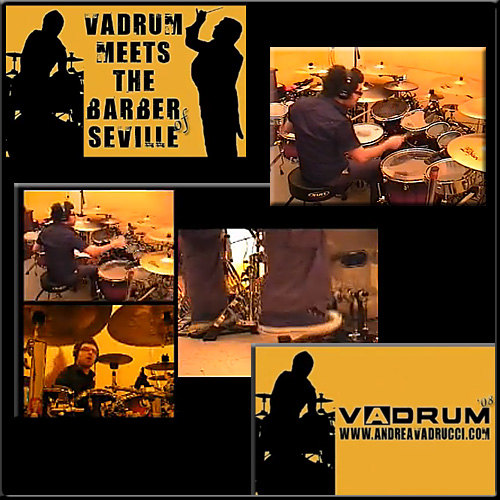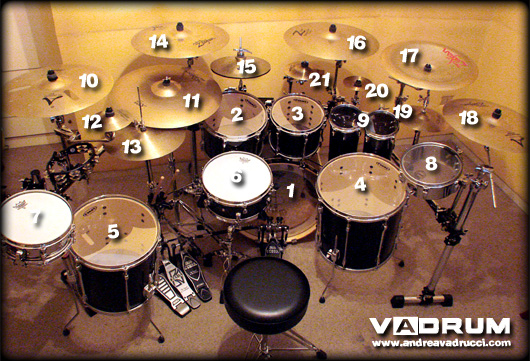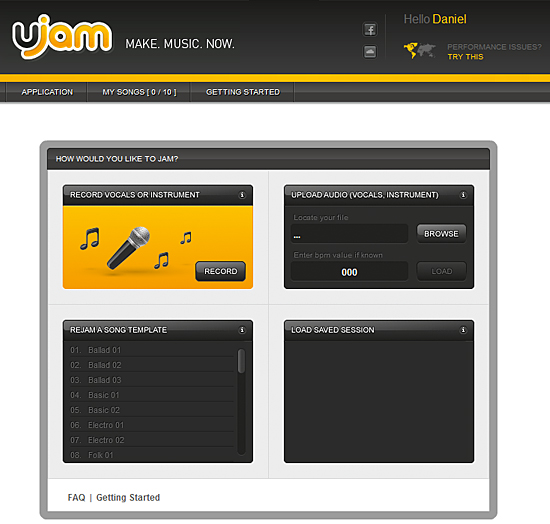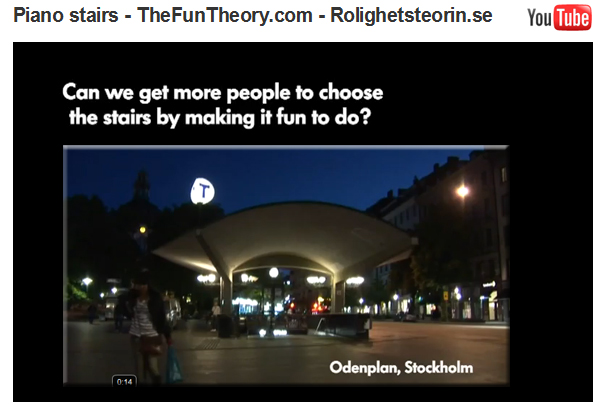Rehearsing your choir with YouTube — from ChoraleNet.org
From DSC:
This reminds me of an idea I was trying to get off the ground, entitled, “Choir Practice.”
MUSIC PAINTING – Glocal Sound – Matteo Negrin — from Technology in Art Education blog
.
.
From DSC:
Perhaps you can enlist some talented students to create something like this, including:
- Fine Artists
- Musicians
- Writers
- Videographers
- Composers
- Video Editors
- …and more!
10 online resources for free, legal music — from Mashable.com by Brenna Ehrlich
16 But I will sing of your strength,
in the morning I will sing of your love;
for you are my fortress,
my refuge in times of trouble.
17 You are my strength, I sing praise to you;
you, God, are my fortress,
my God on whom I can rely.
My thanks to Mr. Joseph Byerwalter for the above link.
.
Also see:
and
and
.
From DSC:
Talk about a video-based resume! Wow!
The Ultimate Study Guide: Wolfram Alpha Launches “Course Assistant” Apps — from ReadWriteWeb by Audrey Watters
The computational knowledge engine Wolfram|Alpha is launching the first three of a series of new “course assistant” apps today. These apps, available for iPhone, iPod Touch, and iPad, are designed to take advantage of the Wolfram|Alpha technology in the service of supporting some of the most popular courses in high school and college.
The idea is to be able to quickly access the pertinent capabilities of Wolfram|Alpha relevant for specific subject areas. Currently, these subject areas are Algebra, Calculus, and Music Theory. But the company says it plans to add apps for other subjects – “for every major course, from elementary school to graduate school,” – including those fields outside math and science.
From DSC:
Notice the term engine (in bold maroon above). This is the type of sophisticated programming that will increasingly be baked into future learning products — as the software seeks to learn more about each learner while providing each learner with a more customized learning experience…pushing them, but aiming to encourage — not discourage — them. I can see an opt-in program where each of us can build a cloud/web-based learner profile — and allow such an engine to be “fed” that data.
New Garageband Killer uJam is the best web app of 2011 — from Cool Stuff for Nerdy Teachers blog
Excerpt:
Ujam is without a doubt the best free app I have seen pop on the web in the last 12 – 18 months and it is a really fresh and unique piece of software that is going to blow your students minds. Essentially uJam let’s anyone create a professional piece of music in minutes by simply singing. No instruments required. ( You must see the video below to believe it.)
iTrump, MusicReader apps help musicians stay on track — from USAToday.com
A technology maestro — from The Economist
A COMPOSER, inventor and educator, Tod Machover wears many hats. The son of both a pianist and a computer-graphics pioneer, his own career melds these two fields in a mix of music and technology.
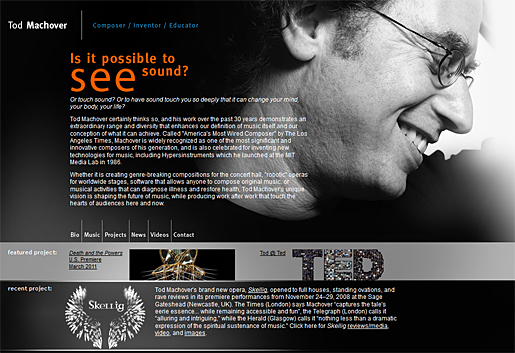
…
This led him to modify his own cello at 14, using headphones and an amplifier. A few years later, while studying composition at New York’s Julliard School in his early 20s, he learnt computer programming. “I definitely caught the computational bug,” he says. In 1978 Pierre Boulez, a French composer, invited him to work at IRCAM, a music research institute in Paris. Seven years later, Mr Machover joined the MIT Media Lab, where he still teaches. He also leads the affiliated Opera of the Future, a research group that explores ways “to help advance the future of musical composition, performance, learning, and expression”.
…
So what’s next? After spending much of his career looking for ways to make music an active experience for all, Mr Machover predicts the future of the field is in personalisation. “I think more and more we will be developing music that can be customised for a particular person at a particular time,” he says, “almost like a prescription.”









